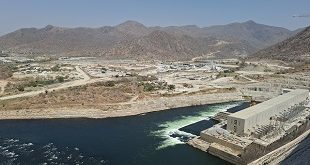But such warnings overlook a crucial lesson of that record: the challenges almost always end badly. China is well aware of how the Thucydides Trap has ensnared both the dominant power and the challenger, even after the challenger might seem to have won. This has not, however, stopped politicians from stoking fears about China and the OBOR initiative.
Sri Lanka is a case in point. Until recently, it had welcomed – and even sought – infrastructure investment from China. When politicians began to attempt to win support by sowing doubts about China’s intentions, however, the prevailing mood vis-à-vis China turned from appreciation to indignation. Those politicians then accepted financial support from the U.S. and India, but that money never came.
Today, Sri Lanka’s government has little choice but to rekindle its relationship with China. Fortunately for Sri Lanka – and other OBOR participants – China’s intentions are far from malicious. Its real goal is to lead an inclusive and cooperative integration process that benefits all participants.
And, in fact, China may well be the best-equipped country for the job. In the U.S., a major infrastructure upgrade is long overdue, with politics, among other factors, impeding progress. By contrast, China has, in the words of Jeffrey D. Sachs, “proved itself highly effective at building large and complex infrastructure” that “complements industrial capital” and has “attracted foreign private-sector capital and technology.”
Of course, China may be accused of advancing its own agenda for any action that it takes abroad. And, to some extent, such accusations would be true, just as they are whenever a global power intervenes abroad, whatever the motivation. The US-led Marshall Plan was aimed not just at supporting the reconstruction of Western Europe after World War II, but also at reviving markets for U.S. exports and containing the Soviet Union.
This is not to say that China could not have done anything better in pursuing the OBOR initiative. On the contrary, it could have been more effective in making the economic case for physical connectivity. And Chinese companies could have taken more care to understand and appreciate local customs and cultures, thereby avoiding unnecessary tensions with local people, as well as to ensure environmental sustainability.
But these lapses are fixable – and are being addressed, both by Xi’s administration and Chinese companies investing overseas. The bigger challenge lies in creating a designated institution to coordinate the many OBOR initiatives. On this front, success will be possible only if countries avoid allowing politics to cloud their judgment. There is no defense for rejecting an economically sensible global initiative just because China is the one leading it.
***
Keyu Jin, a professor of economics at the London School of Economics, is a World Economic Forum Young Global Leader and a member of the Richemont Group Advisory Board.
****
Copyright: Project Syndicate, 2017.
 The Independent Uganda: You get the Truth we Pay the Price
The Independent Uganda: You get the Truth we Pay the Price


